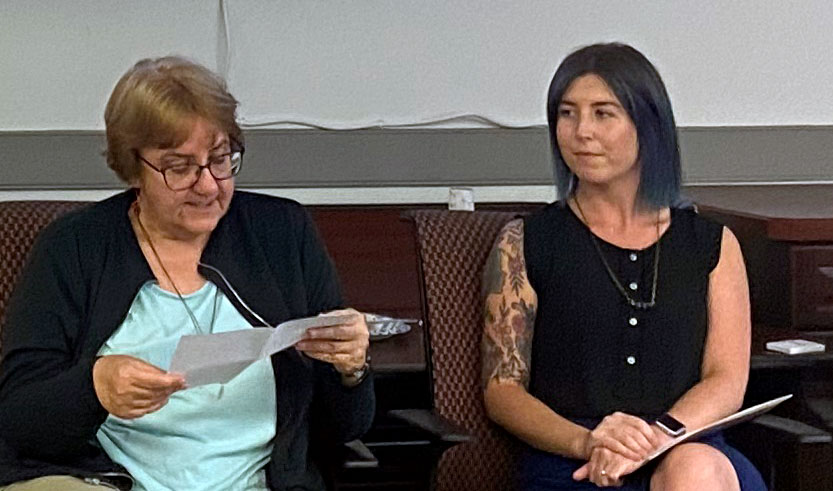In March of 2023, the Internet of Things (IoT) Students Club hosted a group of panelists that tackled prioritizing mental health in academia. The student-run event touched on various topics such as mindfulness, navigating social media, preventing burnout, and acclimating to new environments.
Among the panelists were Sabine Grunwald, Ph.D., director of the UF Mindfulness Program and professor for the UF Soil & Water Sciences Department, Mallory Rubek, wellness manager for UF Health, Angelique Vela, a UF graduate student, and John B. Williamson, Ph.D., associate professor of psychiatry and neuroscience at UF.
Panelists answered questions submitted anonymously by students who registered to attend the event. The questions ranged in topic, but many focused on how social media affects our mental health. Panelists took turns discussing that while it facilitates connectivity and moments of distraction, it can also lead to disassociation and loneliness. According to Rubek, focusing on mindfulness can help prevent an addictive relationship with social media.
“Be present and focus on one task at a time,” says Rubek, “Being self-aware is extremely important. Take a moment to ask yourself as you scroll through your phone, ‘Why am I looking at social media right now? What is this bringing me?’“



“Being open to new experiences and saying yes to things that you normally wouldn’t agree to can be very good for your overall mental health when trying to settle into a new place.”
John B. Williamson, Ph.D., associate professor of psychiatry and neuroscience
While being present is an important step in exercising good self-care practices, this can be challenging for students, particularly international students, who aren’t familiar with campus and don’t know many people in the area. Panelists weighed in on how students can acclimate to new environments.

“Be present and focus on one task at a time. Being self-aware is extremely important. Take a moment to ask yourself as you scroll through your phone, ‘Why am I looking at social media right now? What is this bringing me?’”
– Mallory Rubek, wellness manager for UF Health
“Try and focus on areas of familiarity. Seek out activities you enjoy, try to get some physical exercise, maintain healthy behaviors such as a balanced diet and good sleep habits, says Dr. Williamson, “But also being open to new experiences and saying yes to things that you normally wouldn’t agree to can be very good for your overall mental health when trying to settle into a new place.”
Throughout the discussion, one common theme was reiterated, student burnout is more common than not, and it’s important to have some stress management tools in your back pocket. All the panelists recommended checking in with yourself regularly by acknowledging any negative thoughts, practicing self-affirming behavior, and seeking help when needed.
Resources are available for all students who are struggling with their mental health. Visit the UF Counseling and Wellness Center’s resources page for more information.
